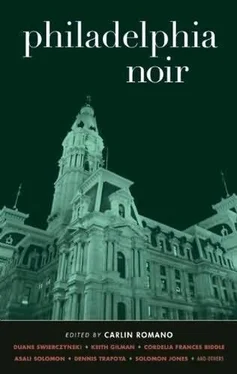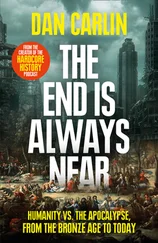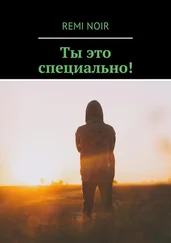She and her mother are being saved by Vaughan, and all three of them know it, saved from a wretched district of Baltimore where laundry flaps on lines and streets smell of garbage. Frances’s mother has never allowed Vaughan to visit them there; in the three months they have known him, he has courted her mother in the homes of the prosperous Watkins relations who have kindly pretended that Frances and her mother are closer kin than is the case. Frances can’t remember her father, who died when she was young. She feels like an old woman, as if she and her mother have switched places in a fairy tale. It should be Frances marrying a prince, not her mother marrying strange, compelling Vaughan Beverly.
Yes, Frances is in love with him, she admits to herself as she regards the soap woman’s ravaged face. Frances keeps a tiny photograph of Vaughan in a locket around her neck, and when she is alone, she examines it, admiring his dark golden eyes, his Roman nose and high cheekbones, the slight puffiness of his lips. In Frances’s fantasies, something happens to her mother-oh, not anything bad, but something clean and painless that simply takes her mother away-and then it’s Frances whom Vaughan falls in love with, and they marry and live happily in this cavernous house on West Evergreen Avenue, and when she steps into this basement as Mrs. Vaughan Beverly, it’s like any other basement, holding only damp bricks and piles of ashes. She would make him wait until they were actually married-unlike her mother, who has occupied his bedroom these past three nights. It was not only Vaughan humming in the lavatory last night, it was her mother too: Frances heard them both. In the mornings, there have been plates piled high with eggs that Vaughan scrambles in his enormous kitchen in a great iron skillet, and the three of them in dressing gowns have eaten the eggs with butter and thick slices of toast that Vaughan pulls from his blazing oven. Maybe there are servants after all, because Frances never sees a dirty dish from one morning to the next.
Frances consults the soap woman silently about her dream: Can it be? Will I be with him? The glass of the casket fogs a little, as if the soap woman has answered. No, it’s just her own breath, condensing there. She takes out her handkerchief and rubs at the spot. How can she long to stay with him, yet know that she must run away? Where will she go? Back to Baltimore? No. She’s in a new place now. In Chestnut Hill. The very name rings in her mind like a bell. When I was seventeen, I came to Chestnut Hill , she imagines telling the soap woman. Then the story in her head stops, because she can’t imagine what might be next. Probably nothing will ever happen to her, and she will always be her same plump self, with freckles.
When she looks up again, her mother and Vaughan are kissing.
“But the question is why?” Frances demands. “Why would someone bring you a dead body? Why would you take it, and keep it? And why do you have so many?”
“Francie,” her mother scolds, from within the circle of her fiancé’s arms. “Vaughan’s a man of science. You know that.”
Science seems to represent all that Frances will never understand. She bursts into tears.
“Would it make you happy, Frances,” Vaughan asks, “if I buried them? There’s a cemetery at Gravers Lane and Bowery, the Old Free Burying Ground. I’ve spent enough time there to learn names on tombstones: Frederick Detwiler, Alexander Parks, Catharine Antieg.”
Frances stares at him. Will it be this easy? To object, to cry, and thus to get her way?
“There’s no need, Vaughan,” her mother says, but he lifts a hand to silence her.
“Yes,” Frances declares. “They ought to be buried.”
Vaughan looks from Frances to her mother. “Then they shall be,” he says.
Frances feels her tears dry on her cheeks. Her face was wreathed in smiles -she read that line somewhere, and it comes back to her as she beams at Vaughan.
“Any objection to the dead butterflies, Frances?” her mother asks sarcastically.
“No,” Frances says. What has come over her mother? This woman in the lacy white dress- Thank heavens for this dress , her mother confided during the courtship. One nice dress and my good complexion . Is this the same woman who struggled to keep their house clean, who sewed clothing for the rich relatives, who made Frances say her prayers every night?
“They can go to a museum, Vaughan,” her mother says. “Aren’t they valuable examples for science?”
“Yes, and I’ll miss them.” Vaughan strolls over to the soap woman to stand beside Frances. “This one, of course, we could just use her up,” he says and laughs.
“Keep her, at least,” Frances’s mother urges him.
Vaughan says, “No, I’ve had their acquaintance long enough. I’ll see that each one is decently interred.”
“Thank you,” Frances says. Generosity has always embarrassed her. “If you’ll excuse me, I think I’ll go to bed.”
“Of course,” replies her mother coldly, and Vaughan nods.
Then Frances realizes something else that is amiss, aside from a basement full of bodies. With a wedding tomorrow, shouldn’t there be neighbors and friends calling to wish them well? She and her mother don’t know anyone here, but Vaughan has lived in Philadelphia all his life. Where is his own family? He is not old; he is possibly younger than her mother. Is he alone in the world? She is overcome by the sudden conviction that the wedding will not take place, that this is all some ruse.
“Goodnight,” she says and turns. She hurries up the stairs, to the first floor. She flings open the door that connects the basement with the rest of the house, runs across the deep carpet of the central hallway, and dashes up another staircase and another, to reach the guest room with the high feather bed and the cheval mirror.
There she opens the mullioned windows and breathes in the fresh air that smells of pine and spruce. The window overlooks a dark terraced garden. She hears little peepers that must be tree frogs, insects buzzing, and some low, croaking call from an animal or a bird of prey. Their songs and cries are old familiar ones of summer ending, of autumn beginning. The nighttime emits a glow, as if starlight is catching on blades of grass.
She is alone, like the soap woman. She has no friend to tell her fears to, no one to write a letter to. Since leaving school two years ago, she has kept close company only with her mother, assisting with the sewing, anticipating and dreading the invitations from relatives, when she and her mother would go forth bravely, in hopes that someone like Vaughan would rescue them. Her mother, donning the lace dress, once asked in anguish, How many times must we do this?
“And here I am,” says a voice behind her, and Frances whirls from the window.
There stands Vaughan. In the light of the wall sconce, he looks taller than ever, his face ruddy, hair golden, brow smooth. He asks, “May I sit down?”
She nods, and he takes a seat on a slipper chair. She remains standing, awkwardly. She wonders whose room this was, who chose the rose-colored damask for the chair, whose face has been reflected in the mirror.
Vaughan says, “You’re scared, Frances. How can I set your mind at ease?”
“Do you love my mother?” she asks.
“I love you,” he says. “You knew tonight. Didn’t you?”
She has longed to hear these words, yet now she feels only alarm. He rises from the chair and reaches for her hand. His fingers are warm and strong.
“It’s not too late,” he says. “You and I can be married.”
“What of Mother? Would she live here, with us?” Frances’s head spins. She can’t believe she’s saying these things.
Читать дальше












